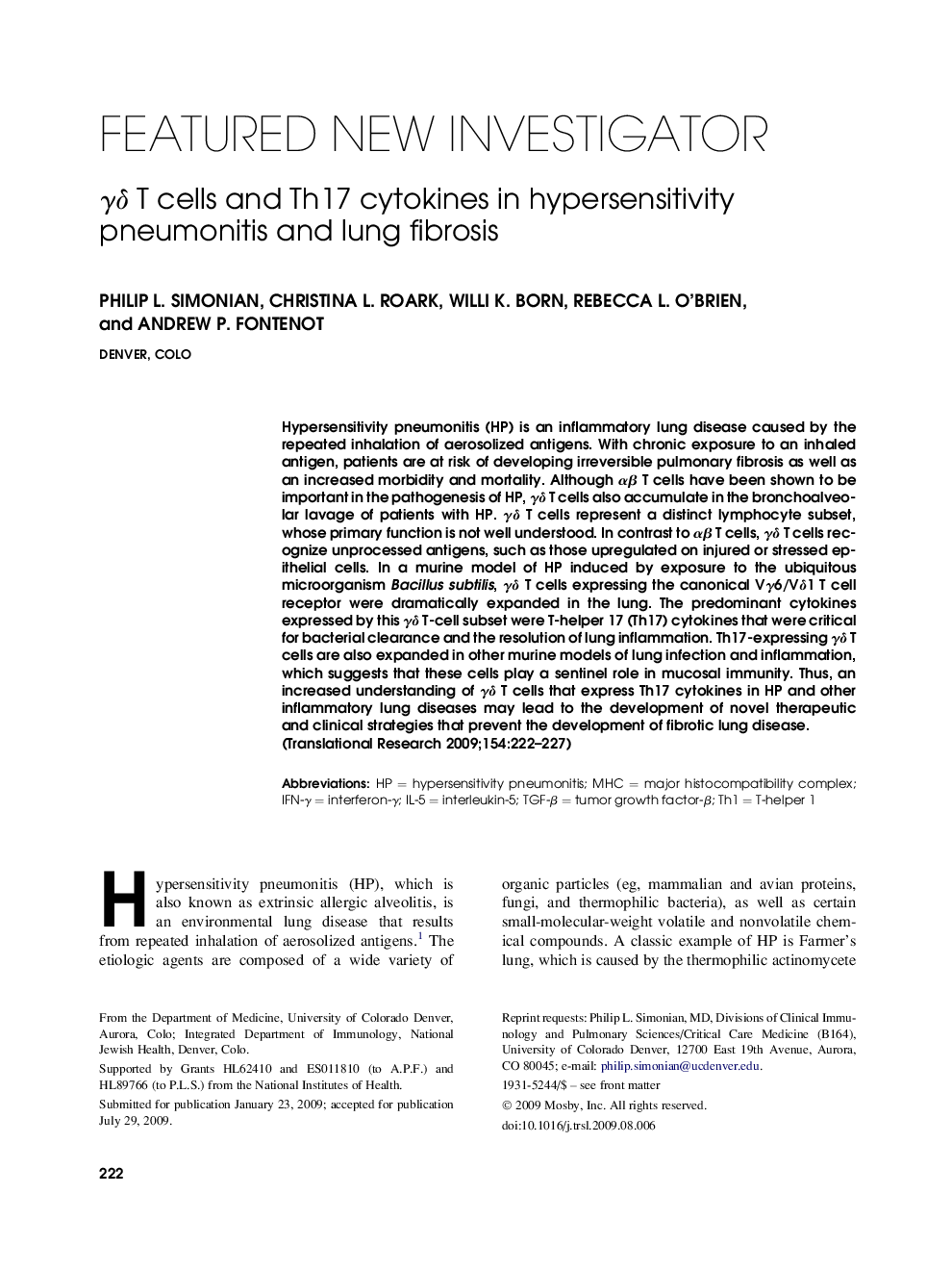| Article ID | Journal | Published Year | Pages | File Type |
|---|---|---|---|---|
| 3840894 | Translational Research | 2009 | 6 Pages |
Hypersensitivity pneumonitis (HP) is an inflammatory lung disease caused by the repeated inhalation of aerosolized antigens. With chronic exposure to an inhaled antigen, patients are at risk of developing irreversible pulmonary fibrosis as well as an increased morbidity and mortality. Although αβ T cells have been shown to be important in the pathogenesis of HP, γδ T cells also accumulate in the bronchoalveolar lavage of patients with HP. γδ T cells represent a distinct lymphocyte subset, whose primary function is not well understood. In contrast to αβ T cells, γδ T cells recognize unprocessed antigens, such as those upregulated on injured or stressed epithelial cells. In a murine model of HP induced by exposure to the ubiquitous microorganism Bacillus subtilis, γδ T cells expressing the canonical Vγ6/Vδ1 T cell receptor were dramatically expanded in the lung. The predominant cytokines expressed by this γδ T-cell subset were T-helper 17 (Th17) cytokines that were critical for bacterial clearance and the resolution of lung inflammation. Th17-expressing γδ T cells are also expanded in other murine models of lung infection and inflammation, which suggests that these cells play a sentinel role in mucosal immunity. Thus, an increased understanding of γδ T cells that express Th17 cytokines in HP and other inflammatory lung diseases may lead to the development of novel therapeutic and clinical strategies that prevent the development of fibrotic lung disease.
